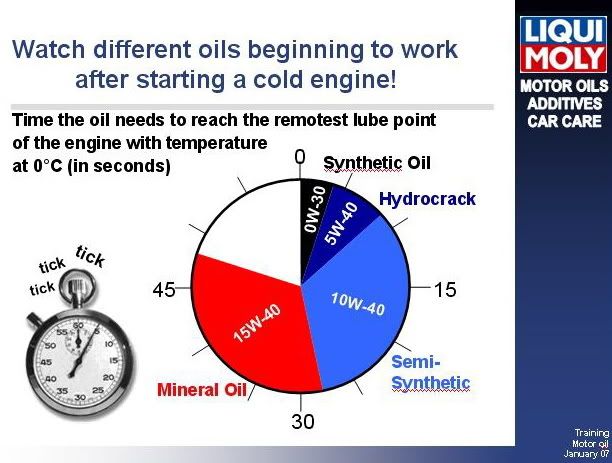I was reading in Popular Mechanics about the current trend towards 5W-30 and 0W-20 viscosities by various manufactures over the last decade or so.
Most of it is common knowledge... they explain how most wear occurs when you first turn the key, no matter how hot or cold the weather is.
They also explain how many people don't really understand oil classification. A lighter grade oil is not a "thin" oil, it just acts and flows quickly under low temperatures.
At -15 degrees, for instance, 5W-30 takes 10 seconds to reach the rocker arms, compared to 20 seconds with 10W-30. But the interesting thing is that 5W-30 is flowing freely to the rockers in 40 seconds, whereas with 10W-30 it takes 3 minutes! Plus it provides the same high-temperature protection as 10W-30.
Even with older cars that recommend 10W-30, since the lighter oil will definitely travel to moving parts faster, wouldn't a lighter grade oil (like 0W-30) always be a better choice?
Most of it is common knowledge... they explain how most wear occurs when you first turn the key, no matter how hot or cold the weather is.
They also explain how many people don't really understand oil classification. A lighter grade oil is not a "thin" oil, it just acts and flows quickly under low temperatures.
At -15 degrees, for instance, 5W-30 takes 10 seconds to reach the rocker arms, compared to 20 seconds with 10W-30. But the interesting thing is that 5W-30 is flowing freely to the rockers in 40 seconds, whereas with 10W-30 it takes 3 minutes! Plus it provides the same high-temperature protection as 10W-30.
Even with older cars that recommend 10W-30, since the lighter oil will definitely travel to moving parts faster, wouldn't a lighter grade oil (like 0W-30) always be a better choice?

